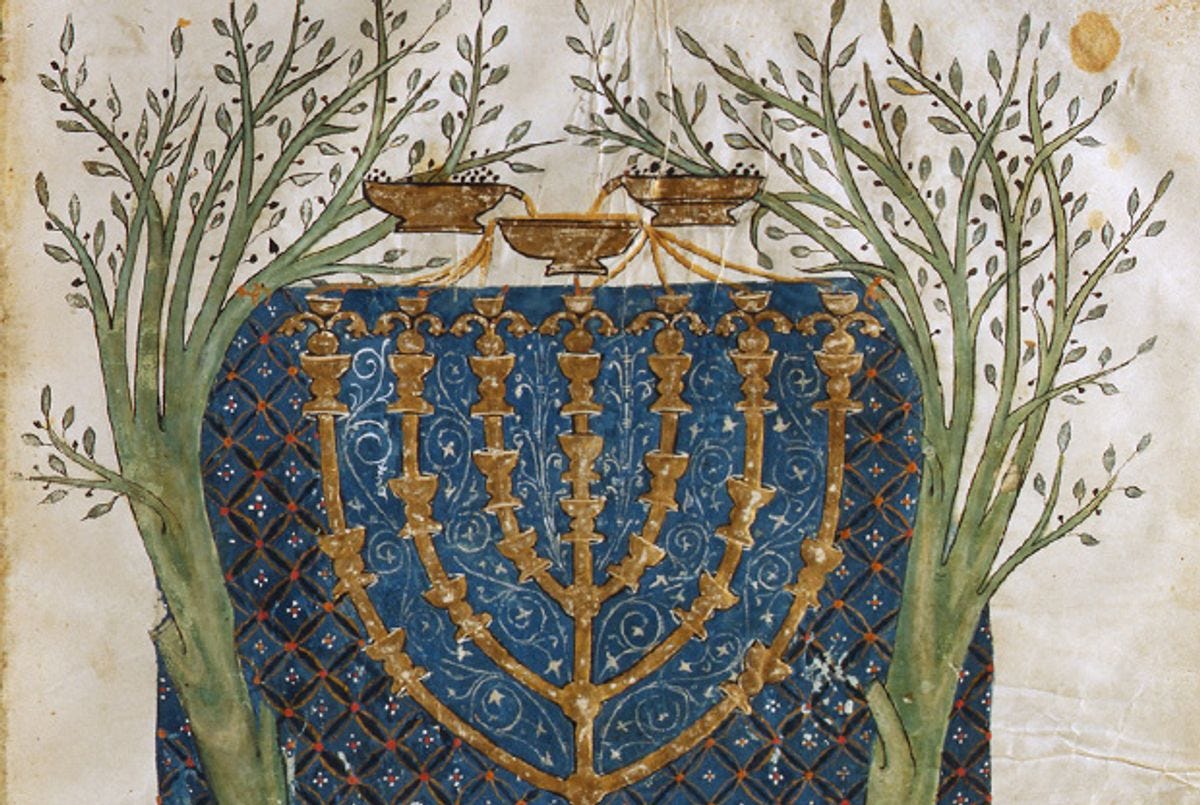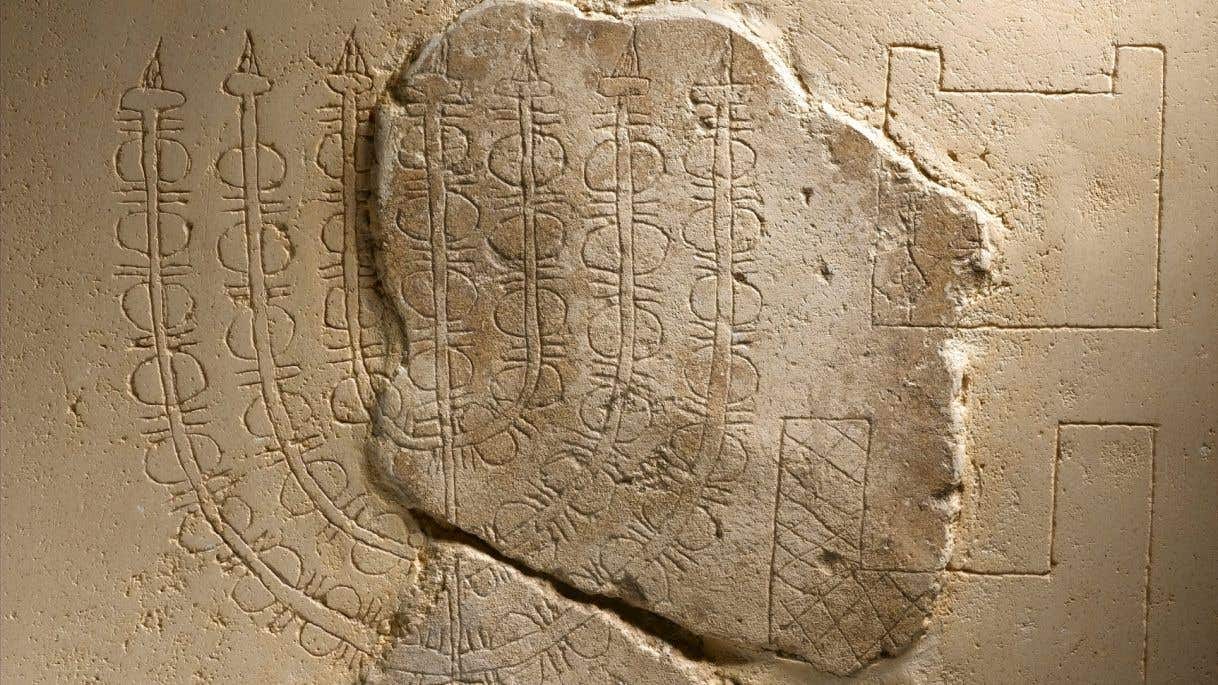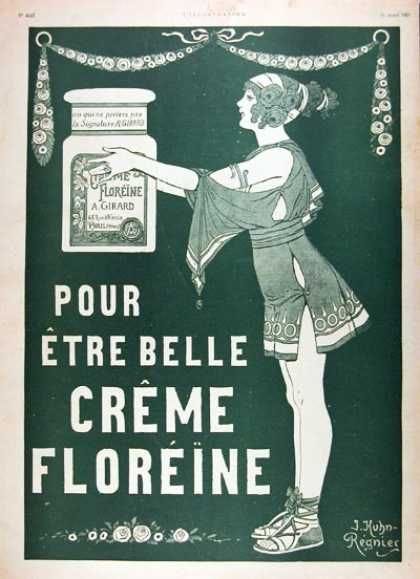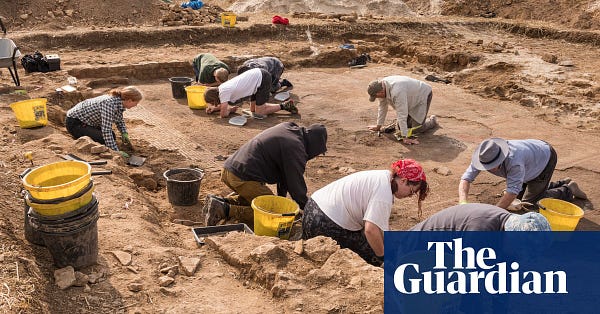
This week, Jordan Rosenblum offers some thoughts about the history, myths, and food of Hanukkah. Then, we turn to recently unearthed mosaics depicting the Iliad, new translations of old texts from across the globe, a conference on classical reception in modern cosmetics marketing, and much more…
Hanukkah celebrates the revolt of the Jews against Antiochus IV and the Seleucid Greeks from 167-164 BCE. This is today referred to as the Maccabean Revolt. According to various ancient recollections of the events, the uprising pushed back against the Seleucid prohibitions against practicing Judaism and the desecration of the altar of the Temple with swine, which led a priest named Mattathias and his son, Judah Maccabee, from the Hasmonean family, to lead the revolt. Upon entering the Temple in Jerusalem in 164 BCE to rededicate it, legend holds that they found only enough oil to light the menorah for one night, and yet it miraculously burned for eight nights.
Reading through 1-4 Maccabees, it’s clear that, for the Hasmoneans, Hanukkah is a festival that commemorates divine support of their theological, political, cultural, and economic agenda. They imagined the Jewish world as divided into a rigid binary: pious Jews and impious Hellenizers. (Like most rigid binaries, this doesn’t represent the totality of ancient Jews; for example, where does Philo of Alexandria fit into this model?). It is ironic, then, that much of the after-story of Hanukkah is one of accommodation and acculturation. When the Babylonian rabbis recall Hanukkah, they recall an otherwise unattested story of the “miracle” of one day’s worth of olive oil lasting for eight days (see Babylonian Talmud, Shabbat 21b).
While scholars quibble about the meaning of this, most argue that the rabbis are recasting the story of Hanukkah – the rabbis did not approve of the Hasmonean legacy and so they reorient the holiday around a divine miracle (for a good summary of sources, see here). They put God back in the season. The irony continues over the ensuing millennium and a half. Pretty much every story told in a modern Jewish Sunday school about Hanukkah is not ancient, but rather reflects later examples of accommodation and acculturation.
The Jewish hands that first held dreidels were almost certainly not in ancient Rome but in medieval Germany (though the Romans did play with spinning tops). There is no evidence for what Jews ate on Hanukkah (if indeed they had any special Hanukkah-related food customs) before the medieval period. There were certainly no potatoes in the ancient Mediterranean for the rabbis – let alone the Hasmoneans – to fry, but as the “miracle” of the oil lent meaning to frying things, Jews fried everything: from latkes to Jelly donuts. Medieval Italian Jews (thanks to a connection with oral traditions related to the story of Judith) first fried ricotta pancakes for Hanukkah. When potatoes arrived on the scene, many Jews started frying those (though the potato latke didn’t really catch on until the 1800’s). And, in case you are curious, sour cream predates apple sauce as a favorite latke topping.
The irony only gets more ironic in America, where Hanukkah is reimagined as a season of merchandising and gift-giving to “compete” with Christmas. Like another American Jewish food practice, namely Chinese food on Christmas, to tell the story of Hanukkah in America is to narrate how Jews adapted to and sought to acknowledge both difference and similarity within a broader American culture.
Hanukkah is not owned by the ancient Jews, and there is no single meaning of the holiday. Rather, its history highlights the polyvalent nature of holidays more broadly. However it might serve as a reminder to non-Jewish individuals to join our Jewish colleagues, friends, and community members in celebration and solidarity—especially in the midst of rising anti-semitism in the United States and beyond.
Angel, Joseph and Stephen Fine, “Who Were the Maccabees Really? Hanukkah, the Hasmoneans and Jewish Memory. [video],” Yeshiva Academic Institutional Repository (YAIR) (December 15, 2020).
Ashton, Dianne, Hanukkah in America: A History. New York: NYU Press, 2013.
Gross, Aaron S., Jody Myers, Jordan D. Rosenblum, With a Foreword by Hasia Diner, Feasting and Fasting: The History and Ethics of Jewish Food. New York: NYU Press, 2019.
Honigman, Sylvie. Tales of High Priests and Taxes: The Books of the Maccabees and the Judean Rebellion against Antiochos IV. Berkeley: UC Press, 2021.
Ma, John. “Re-Examining Hanukkah,” Marginalia (July 9, 2013).
Magness, Jodi. The archaeology of the Holy Land : from the destruction of Solomon's Temple to the Muslim conquest. Cambridge: Cambridge University Press, 2013.
Moss, Candida. “Did Ancient Jews Change Hanukkah to One-Up the Competition?” The Daily Beast (December 29, 2019).
Noam, Vered. Shifting Images of the Hasmoneans: Second Temple Legends and Their Reception in Josephus and Rabbinic Literature. Oxford: Oxford University Press, 2018.

Seen on the Web
Ancient Judaism scholars Annette Yoshiko Reed and Simcha Gross both delve into the “real” meaning of Hanukkah with two erudite Twitter threads on the subject.


Over at the SCS Blog, Edward Nolan writes on his recently completed dissertation focused on “Language and Difference in Herodotus.” As he notes, Greek worldview had a significant impact on issues such as slavery and the justification of warfare. Additionally, you may want to visit Giacomo Loi’s dissertation spotlight on “A Tale of Four Cities: Exploring Classical Reception in Modern Hebrew.” In it, Loi asks, “what is the place of classical culture in Modern Hebrew culture?” Take a look at these posts and then contact the SCS Blog’s Editor-in-Chief, T. H. M. Gellar-Goad, if you want to spotlight your own dissertation.
This week brought the news of new mosaics dating to 300-400 CE discovered in a Roman villa in Rutland, UK. They depict scenes from the life of Achilles and the Iliad.
Out on December 14, 2021 from Penguin Classics is The Archeologist and Selected Sea Stories by Andreas Karkavitsas with an introduction and translation by Johanna Hanink. And if you love the amazing translations like those done by Prof. Hanink, you will also want to check out the latest issue from Ancient Exchanges, titled “Diversions.” From Mufeng Zhou translating Liu Zongyuan (柳宗元) to Salma Harland translating Kushājim, these texts are a welcome diversion in the midst of, well, the current state of the world.
The new Manual of Roman Everyday Writing (vol. 1) by Alex Mullen and Alan Bowman is now out and open access! Access it here.


Conferences, Lectures, and CFPs
Sign up this week for a December 13, 2021 virtual panel on “Classics in Africa: The Ways Forward” organized by Michael Okyere Asante. Learn more about the state of the field in Africa and help brainstorm solutions to challenges faced.


In terms of CFPs, from September 8-9, 2022, there will be a hybrid conference on the reception of antiquity in modern cosmetics advertising and marketing. Please read the call for papers below and email Jane Draycott or Laurence Totelin with a 300 word abstract for a 20 min paper.





New Online Journal Issues curated by @YaleClassicsLib
Humanistica Lovaniensia. Vol. 70 No. 1 (2021) #openaccess NB: “Textual and Interpretive Notes on the Epic Poems of Maffeo Vegio” by Kyle Gervai
Ancient Exchanges Diversions (Fall 2021) #openaccess
Near Eastern Archaeology Vol. 84, No. 4 (Dec. 2021) NB: “A Sasanian Triumphal Arch in Bishapur” by Alireza Shahmohammadpour
Proceedings of the Boston Area Colloquium in Ancient Philosophy Vol. 36 (2021) NB: “Anger and Our Humanity: Transhumanists Stoke the Flames of an Ancient Conflict” by Susan B. Levin
Book History Vol. 24, No. 2 (Fall 2021) NB: “Books in Books: The Idea of the Book in the Fifteenth-Century English Visual Imagination” by J.R. Mattison
Anzeiger für die Altertumswissenschaft Vol. 72, No. 2 (2021) #openaccess
Journal of Ancient Near Eastern Religions Vol.21 No. 2 (2021)
Acta Antiqua Academiae Scientiarum Hungaricae Vol. 60 Nos. 3-4 (2020)
Journal of Eastern Mediterranean Archaeology and Heritage Studies Vol. 9, No. 4 2021
Revue archéologique de l'Est Vol. 69 (2020) #openaccess
International Journal of Cultural Property Vol. 28, No. 2 (May 2021) NB: #openaccess critical forum on Weiss & Springer’s Repatriation and Erasing the Past
Manuscript Studies Vol. 6, No. 2 (Fall 2021) NB: “Data Sanctorum: The Corpus Kalendarium Database of Devotional Calendars” by Aaron Macks
Incontri di filologia classica Vol. 20 (2020-2021) #openaccess
Classical World Vol. 115, No.1 (Fall 2021) The Dominant Female in Ovid’s Metamorphoses: Gendered Allusions, and Gendered Receptions
Annual of the British School at Athens Vol.116 (2021) NB: “Sinclair Hood (1917-2021)”
Libyan Studies Vol. 52 (2021) NB: “Pax et Bellum en Tripolitaine occidentale (partie tunisienne) à l’époque vandale” by Mohamed Ellefi
Acta Archaeologica Academiae Scientiarum Hungaricae Vol. 72 No. 2 (2021)
Pitches
The Public Books section "Antiquities" continues to take pitches for articles to be published in early 2022. You can also pitch to our “Pasts Imperfect” column at the LA Review of Books using this form. Thanks for reading!








